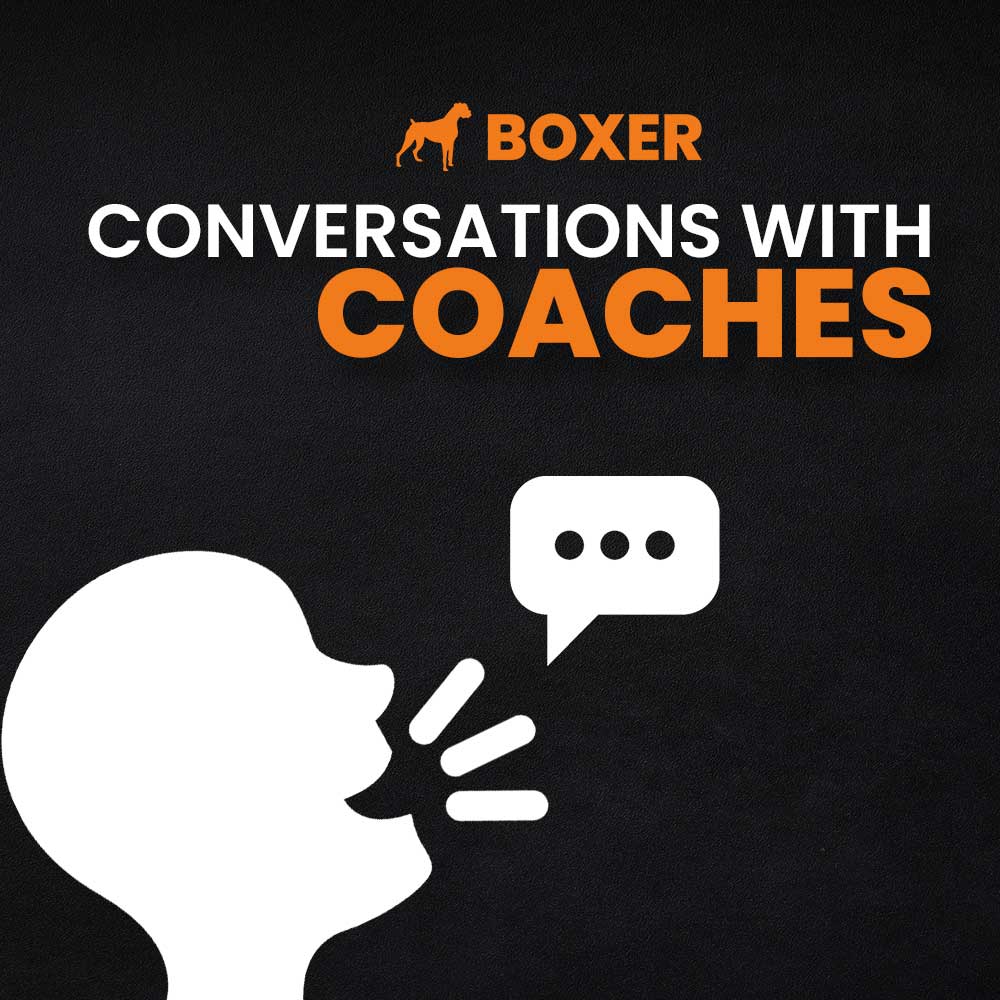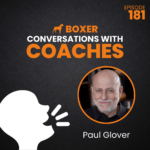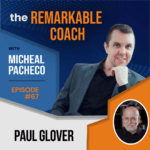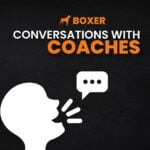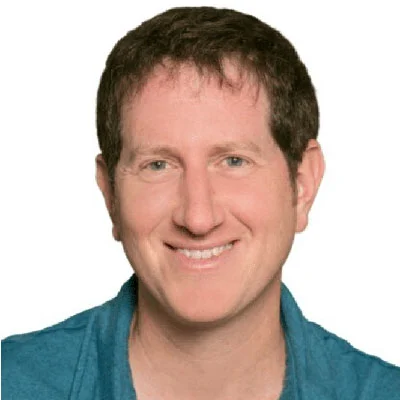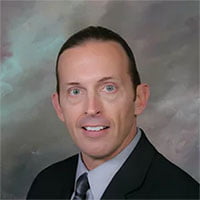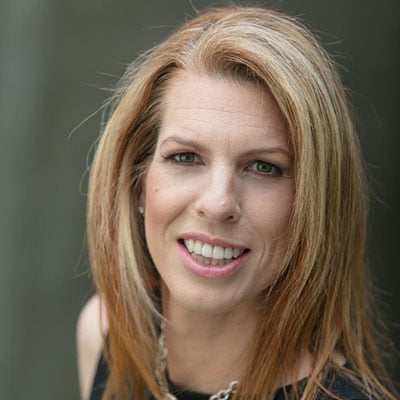Kevin Stafford 0:00
Hello, everyone, and welcome to another episode of the coffee with Coach’s podcast. I’m your host, Kevin. And today I have Paul Glover with me. Paul is a C suite performance coach with over 20 years of experience as a federal court trial lawyer. He’s a passionate storyteller who believes in the power of narrative to influence and educate in the business world, personal life, and even courtrooms. He’s also a member of the Forbes Council and author of the book work quake, which is a great title, by the way, Paul, welcome to the podcast.
Paul Glover 0:28
Thank you very much, Kevin. It’s a pleasure to talk to you and to your audience.
Kevin Stafford 0:32
Excellent. Let’s, let’s get cracking. Let’s get to get started at the start at the beginning. How did you? I mean, obviously, you were a federal court trial lawyer for a long time, how did you transition into coaching? How did you realize that you wanted to be a coach? And how did you go about starting a coaching business?
Paul Glover 0:48
Well, it was a career change. And I looked at my skill set, critical thinking is part of being a trial lawyer. And so you have to be a persuasive storyteller. The concept of jury trial work is not showing people the facts, but telling people the facts wrapped in a narrative. And a part of that narrative is to invite the jury along on a journey. And I always termed it the Joseph Campbell’s hero’s journey, my journey, turn my client into a hero, and to take the journey to journey along, starting from how we ended up in the courtroom, and what should happen next by by engaging the jury and making them a part of that story. And I worked very successfully. So I looked at that skill set. And also, being a being a trial lawyer. For me, it was successful for a variety of skill sets that I believe leaders need to have. One is I was perpetually curious. And being perpetually curious allows you to ask the right questions. If you get the right questions, you get the information, you need to be able to make decisions. The second thing is I was an empathetic listener, you’ve got to do that. Everyone talks about active listening, that’s not good enough, no empathetic listening is actually developing relationships. So based off of that, I decided that I had the skill sets necessary to reach out to C suite employees and leaders and share that experience with that. And I work.
Kevin Stafford 2:30
Long story short, it worked.
Paul Glover 2:31
I now have a national coaching program, and 48 people are currently in my program. And I enjoy every one of them. And we have a we were both on a journey together. One of my clients actually called me a Sherpa. that Paul will take you to the mountaintop, but he will not carry your pack. And that’s pretty much and I brought myself as the no BS workplace legacy coach. Because as a trial lawyer, I have a very attuned antenna for bullshit. And I don’t tolerate it well.
Kevin Stafford 3:11
Nor should you and I definitely get that I get the idea that you have a very, very sharpened knife, you have a very good strong edge for BS for bullshit. And so anything that comes near you’re just like, No, no.
Paul Glover 3:26
When they say I call bullshit, and that is that, to me, is an obligation on the part of a coach
Kevin Stafford 3:32
100%. And I love that it’s fueled by curiosity and empathy, which are very easy values to Name Check. And they’re also fairly easy to understand. But then the work required to actually go about having those values and living those values and sharing those values and being open and being curious, because curiosity. That’s always been a funny one for me, because I’ve always loved curiosity as a value. But as I’ve aged and made some mistakes, I’ve learned that there’s, there’s some things you have to accept that come with curiosity, like the very idea that you’re very, very, very wrong about something being curious will lead you to places where you’re like, Oh, I had the complete wrong idea about that. And some people uncomfortable with that side of curiosity, but you got to have the whole thing if you really want to want to make it work for you. I just, I love those as like the foundational ideas right there.
Paul Glover 4:21
Well, and and if I tell people if you want to gett it, you need to be open to getting it. That to me is a dialogue that a coach and someone who’sbeen coach needs to have. My thing is I’ve got an opinion about everything, doesn’t mean it’s right. It’s just my opinion. And you convinced me and you do have to do that. That I’m wrong. I’ll accept that. Because that’s part of the deal.
Kevin Stafford 4:52
Yeah, and it’s it’s a good it’s a good part of the deal. Like it’s we have we have crossed wires in our brains. I think a lot of us where we think because that is somehow like a negative thing. It’s like no, no, no, that’s, that’s when I get to learn something new, I get to stop being wrong. And get on the path to being right. Because you helped me. And that’s like, it’s gratitude for that is another core value to gratitude for that process is something that I’ve, I’ve been working to learn.
Paul Glover 5:17
And you’re spot on about this. And that’s how growth occurs. And in the coaching program, isn’t that what we’re about, we’re about growing. But I also believe that the coach goes, I don’t believe that coaching is a one way situation. I’m not the sage on the stage. So we’re going to have a conversation, and I want to bring my expertise, my information, my intelligence, to that conversation, but I expect you to do the same thing. And that’s called commitment, by the way. And the deal is, if you go commit, you cannot change. And the hardest people to coach are successful people. They’re like, Okay, now you want me to do something hard? Yes, I do. Yes, if you want to be in the coaching process, it’s about you need to not only be successful, but recognize you can be more successful, that there’s potential, if you’ve already reached the range of your potential, don’t be in the coaching process, what’s the point? Like, go out and continue doing what you’re doing, and be satisfied. But people who come into the coaching process that are seriously committed to it, realize that they need to get better, they need to change they need to transform. And that’s what it should be about is looking, finding that potential and then working your way towards it. And by the way, it’s evolutionists that I never if if you suddenly recenter your potential, just to have them start shoveling dirt on you, because you’re done.
Kevin Stafford 6:52
I mean, quite frankly, I couldn’t say it better, much better myself. That’s, that’s perfect. You pretty much and also I love I love so much of what you said this, I’m like, my brains already like going a mile a minute and like 20 different directions. I love something that I discovered I heard a few years ago that really helped me to understand the process of change is, and it’s not true 100% of the time, I mean, hardly anything is but What Got You Here Won’t Get You There. Just as a reminder, like, you know, and like you said, sometimes if you’re doing what you should be doing, and you’re like, you’re on the path of success, and you’re doing it’s like, okay, cool, that’s great. I wouldn’t keep doing that. And realize that there’s going to come a moment, there will be a point, probably when you decide to get a coach and realize and kind of push through that what got you to where you are right now, which may well be a successful, satisfied content place won’t get you there, they’re being the place you want to go next, the success you want to have next. And I just I love that as a reminder, you know?
Paul Glover 7:48
Absolutely. And by the way I depressing thing is the world changes whether we like it or not. And if you’re not capable of being agile enough to adapt, suddenly, what you’re doing becomes irrelevant. Why a different set of circumstances different situation. And we’re experiencing that even faster. Now, obviously, I think pandemic revealed the flaws and leadership that need to be addressed. And suddenly that requires that as a leader, whatever you were doing a major successful is not going to do that. Now the circumstances have changed, you better be willing to change with it. And that’s usually where coaching comes in. Because you need to break old habits, not bad, certainly, but old habits. And you need to have new habits to replace stuff. And unless you could go through that transformation, by the way. And leaders, leaders struggle to do that on their own or with their team. Because we’re still dealing with I am I am supposed to be infallible. Right? Opposed to make mistakes. God forbid I show that I’m vulnerable. And that’s what’s required anymore. authenticity and vulnerability, empathy, compassion. Those are all words. We know definitions, too. But we don’t know what to do. Coaching is about that.
Kevin Stafford 9:09
And I love that list of attributes that list of values of virtues, a lot of people will consider them and I hear this term thrown around, sometimes less now than I used to, but soft skills, they’ll call them soft skills. And I just, I just cringe when I hear is like, Oh, I mean, I get that you just don’t understand how to bring them into like the tangible reality of your life. But don’t call them soft.
Paul Glover 9:33
You’re spot on with that because first, we finally got around to recognizing essential workers. Isn’t that weird? They were always there. We never realized how essential they were. And so when we look at those terms, those are essential terms. They’re not soft, they’re required. And we’re starting to get your right we’re starting to get there because I hear people using them when they talk I want Mercy you use them when you act. The concept of empathy is I will I understand you because I’m walking a mile in your shoes, right? That’s not good enough compassion is actually seeing empathy and taking action. Because if you don’t take action, the fact that I see your struggle, I see the issues. Am I a bystander? If I’m a leader, I better not be. So compassion is now I’m going to act in response to what you’ve showed me. You mean? And when we think compassion is leadership, it makes leaders clinch. That’s all who that that’s not the way we’re, yeah, that’s exactly the way because the deal will be professional, now has to have a personal component to it. Because if you don’t have that, all you get as transactions. You add, when you add authenticity, when you add compassion and empathy, you get a relationship. And that’s where you suddenly have the magic sauce.
Kevin Stafford 11:09
The magic side, he was just actually though, the word secret sauce just went through my head, even though it’s not so much a secret anymore. I don’t know if it ever really was, but it felt like it for a while. I met okay, I could do this all day. We’re like we’re like right in my wheelhouse. But I want to make sure we talk we bring it up to the present and in the future. So I usually asked it, who do you coach? And how do you coach them? We know who you coach, primarily C suite as a performance coach, and how you coach them? Do you? Do you probably do all of this one to one small group, medium to large group or masterminds? Do you do any keynote speeches, you’ve all you’re obviously an author. So you have a book. So talk about the how of your coaching,
Paul Glover 11:51
I do not do coaching except one on one. It confuses me to have a group. First, there has to be trust in the group for us to actually have meaningful conversation. And I don’t I just I’m not comfortable until I know enough people, I guess I could get to a group. But there’s no reason to do that. I do one on one coaching. Because once again, the level of trust in the relationship have got to be very firm, that commitment has got to be there. And if you’ve got a group of eight and one is that committed, it’s like you’re it’s an anchor. And so no, I can’t do that. I don’t do that. And I appreciate people who do know, I do entrepreneurs, I do executives. But I also coach based on the concept of legacy. I don’t believe that that that you should be doing something short term, I think that every action should be aimed at what your legacy is going to be. And that requires that you be forward thinking, whether it be five years or be 10 years. And what I find is once we’ve established what your legacy wants to be, what you want it to be, is your actions will now be aligned with that outcome. And short term actions that you might take, that would be detrimental. You don’t take because you have a bigger goal, you have a bigger a bigger outcome result. And you start to you start to eliminate making sacrifices that will Oh well that will be detrimental to that goal. It’s a it just gives you a broader perspective. And it changes the way you interact.
Kevin Stafford 13:33
Perspective, that’s the word that popped into mind. It’s that perspective. Whether it’s and we talk about it, we think about prospective all the time. But we’re not often actively engaged in choosing one that’s important. And then making sure that we’re evaluating our actions based on that perspective. And legacy is the perfect word for it. And it’s a great, it’s a measuring stick. It’s like what am I doing right now, that is going to serve my legacy and the way in which I want it served. And then you have to take that like longer look like you said 510 20 years in the future. And that has to also happen right in the present moment as you’re constructing your day.
Paul Glover 14:08
Exactly. Because every day you create legacy, right? I mean, that’s the whole point. And if you do it, if you know what it’s supposed to be, you know, what you want it to be your actions for that day will be aligned with that. And when they’re not you course, correct, right? You go alright, I did something that in retrospect, is not contributing to my legacy. I’m not going to do that again. Let’s say notice stuff, that doesn’t matter. Well, one of the hardest things for people to do is to say, No, I’m not going to do that. But when you recognize your legacy, you say, does that contribute to my legacy? And if the answer is no, you find a way not to do it.
Kevin Stafford 14:50
And it’s funny how you how you find a way to do the things that are important to you, whether you realize it or not. You do find a way to take care of those things that are genuinely important. Do what you want to do, I think, and I think you’ll agree is to be conscious of what it is you actually want. And to make a choice to want that, and then to allow that choice to feed back into all of your other choices.
Paul Glover 15:12
Absolutely. And one of the things that I emphasize is, you may have finite energy and finite time and infinite task. Let’s choose the appropriate task with that finite energy and finite time, because I don’t care who you are, if you’re, you know, you only have so many hours, where you’re going to be productive and generating whatever it is you generate. And once again, if it is not connected to your legacy, or the organization’s legacy, which is should be the same, right? If you’re waiting, then then why are you doing that? Why are you wasting time and energy on something, excuse me on something that that doesn’t matter to your legacy? It focuses when we always talk about focus. This is how you focus. Only you start making different choices, better choices.
Kevin Stafford 16:05
I was gonna say, yeah, it’s not just different and better choices, choices that are, again, another one another perfect word choices, they’re more in alignment. And that alignment, you think like I’m thinking about in my head, now I have a telescope, where you basically you have these different lenses, that when they’re in the correct alignment, allow you to see as far or as near as you as you desire. And that’s that’s the analogy that’s going on in my brain right now. It feels perfect.
Paul Glover 16:30
I’m telling you, right now, I’m stealing that analogy. And I’m not going to give you credit. So just so you know, I love that I do think that that is an element of legacy, you are telescoping out to a future. And you now need the telescope allows you to see it with enough detail to not only imagine that, but actually feel right, like you’re there. And I think that that anyway, that’s great. That’s great.
Kevin Stafford 16:57
Yeah, as the inventor of the telescope and myself. To close, we’re already almost 20 minutes and where, where can people find out more about you? And also how can people connect with you and engage with you? Do you have a preferred social media that you’re active on that you’d like to make connections with people on and then talk about your website where people can just learn more about you?
Paul Glover 17:22
Well, LinkedIn is the only place I do social media, I don’t have time for any of the rest of it. So yeah, it’s LinkedIn. And I’m there at Paul Glover coaching. And my website is Paul Glover coaching.com. And it’s Paul at Paul Glover. coaching.com you can send me hit me up with an email, and I guarantee or a connection request, and we will have a conversation.
Kevin Stafford 17:48
You make it too easy. I love it. Well, thank you so much for this conversation. I feel like I’m going to be sitting down and unpacking things and feeling this feeling for the rest of the day and beyond. So just thank you so much. I really appreciate it.
Paul Glover 18:02
And thank you so much, Kevin, obviously the opportunity to talk about this stuff is is part of my passion and part of my legacy. It’s why I do podcasts. But I appreciate the questions I think they were spot on. And obviously trigger me to give you some information that I hope is useful. And I hope that our paths cross again.
Kevin Stafford 18:20
Asdo I and yes, your passion is evidence. I know I’ve experienced it. I’m pretty confident our audience is experiencing as well. So thank you again, Paul. Thank you for listening. Audience. I love you find Paul, read what he has to say connect with him on LinkedIn. Even if you just want to just just be connected with this man. It is delightful. I’m sure you could tell. And hey, we’ll talk to you all again very soon.
Transcribed by https://otter.ai
